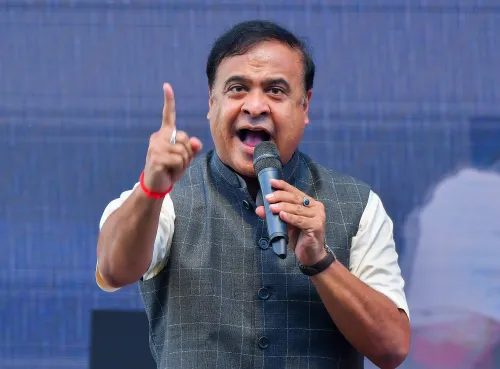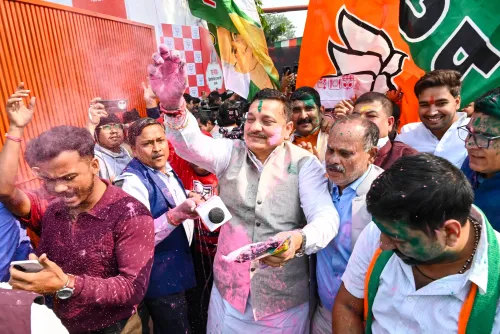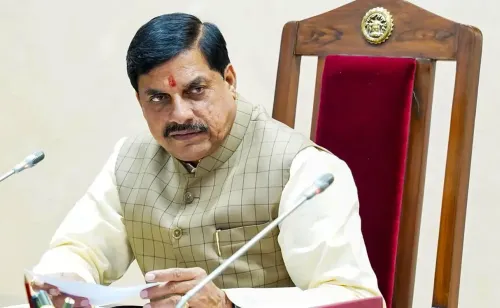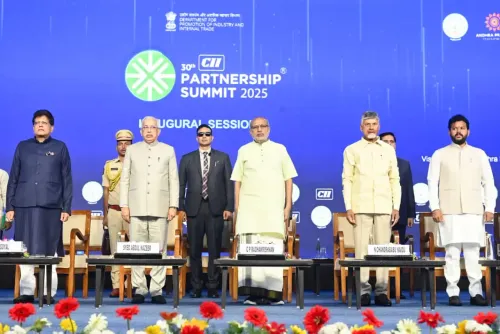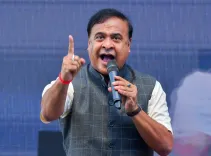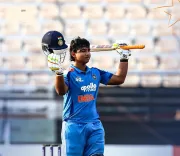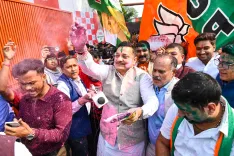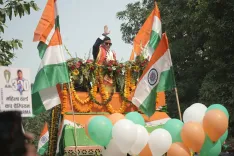Empowering Telangana Women: SHGs Invest in Buses and Petrol Stations
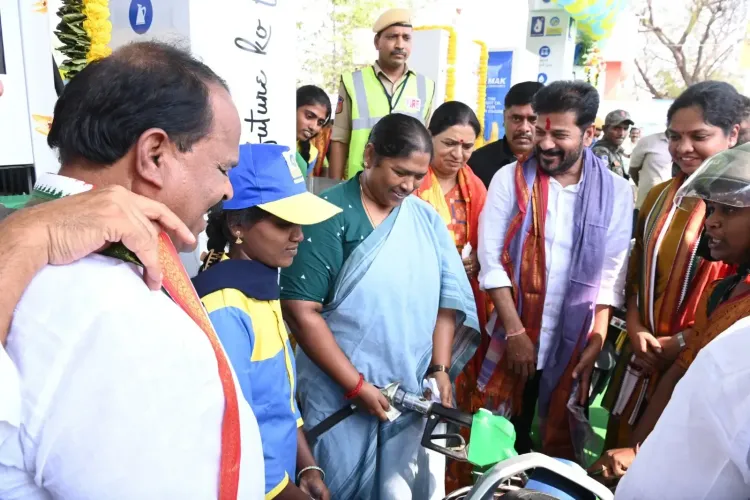
Synopsis
Key Takeaways
- Women SHGs in Telangana are diversifying into transportation and fuel services.
- Government initiatives are providing financial support for bus purchases and operations.
- SHGs are set to establish solar power plants to promote sustainable energy.
- Petrol stations managed by women SHGs are generating significant profits.
- Future plans include expanding these initiatives across all districts.
Hyderabad, March 7 (NationPress) The journey of women Self-Help Groups (SHGs) in Telangana has evolved significantly, transitioning from crafting toys and handmade goods to buying and operating buses, petrol stations, and establishing solar energy units.
Supported by the Telangana government and financial institutions, these economic activities are transforming the lives of countless women involved with SHGs.
In a groundbreaking initiative aimed at the financial empowerment of SHGs, the Telangana government, led by Chief Minister Revanth Reddy, is set to offer bank loans to these groups for purchasing buses, which will then be leased to the Telangana State Road Transport Corporation (TGSRTC).
This innovative program, the first of its kind in India, will also involve SHGs in bus operations, especially in rural regions.
The government plans to allow Mandal Mahila Samakhyas (MMS)—the district-level federation of women SHGs—to acquire 600 buses which will be rented out to TGSRTC. In the initial phase, 150 buses will be purchased at a price of Rs. 36 lakh each.
On International Women’s Day, the scheme will launch with 50 buses, where SHGs will contribute a margin percentage, while banks will finance the rest.
Each bus will be hypothecated to the respective MMS and registered under their names.
For the first phase, Rs. 54 crore has been allocated from the Community Investment Fund of the Society for Elimination of Rural Poverty (SERP).
The TGSRTC will pay Rs. 77,220 monthly to each MMS as rental income.
This monthly rental will be paid over seven years to reimburse the funds invested by the MMS, credited back to their SERP Community Investment Fund account.
This initiative will also assist RTC management in acquiring more buses to cater to the rising passenger demand, especially with the free travel for women program.
The Revanth Reddy government also plans to offer an E-auto subsidy of Rs. 1 lakh for every auto rickshaw to women who have completed driving training.
These initiatives are part of the Telangana government’s ‘Mahila Shakti’ program launched by Chief Minister Revanth Reddy last year.
Recently, Telangana’s first petrol station, established by the Zilla Mahila Samakhya (ZMS), was inaugurated in Narayanpet.
The Revanth Reddy government provided six guntas of valuable land, while ZMS invested Rs. 20 lakh for land leveling and working capital.
Bharat Petroleum Company Limited (BPCL) constructed the petrol station at a cost of Rs. 1.30 crore.
Women from SHGs are managing the petrol station, employing nine individuals, including seven women, who earn a monthly salary of Rs. 11,000 each.
This petrol station is projected to generate an annual profit of around Rs. 50 lakh, which will support women-led SHG ventures in the district.
Chandrakala Kotakonda, president of Narayanpet ZMS, manages the petrol pump and expresses her enthusiasm for this new opportunity, stating, “We are all excited about this new experience. This is not only financially empowering but helps us learn new things and boosts our confidence.”
The CM Reddy government plans to establish a similar fuel station in every district, partnering with oil marketing companies.
Divya Devarajan, CEO of the Society for Elimination of Rural Poverty (Telangana), described this as a unique and collaborative business model.
As part of the Mahila Shakti program, women SHGs will also develop 2MW solar power plants across all 32 districts, with financial assistance from the government.
The Panchayat Raj department has proposed the allocation of 1,000 MW capacity solar power plants to SHGs.
Deputy Chief Minister Mallu Bhatti Vikramarka, who also serves as Energy Minister, has instructed the Energy department to ensure that women SHGs can generate the planned 4,000 MW of solar energy.
The estimated cost for each 1MW capacity solar plant is Rs. 3 crore, with SHGs expected to earn approximately Rs. 30 lakh annually from each plant.
Officials will assist women in securing bank loans for establishing these solar power plants, with the Energy department leasing land for SHG projects.
Through the Mahila Shathi initiative, the government aims to provide financial linkages amounting to Rs. 1 lakh crore to SHGs via banks and Streenidhi over the next five years.
The goal is to create one crore millionaire women by 2028.
The initiative emphasizes skill development training, branding of SHG products, and effective marketing strategies to elevate the visibility of SHG enterprises.
Plans are also underway to set up common processing centers and mini industrial parks for women SHGs in every assembly constituency.
In a recent move under the Indira Mahila Shakti program, the government delivered 25 mobile fish retail outlet (MFRO) vehicles to SHG women last month, with a unit cost of Rs. 10 lakh, where 60% funding was provided by the government, and 40% contributed by members.
The Telangana government is also awarding contracts to women SHGs for stitching uniforms for students and police.
Additionally, women SHGs are being allocated Mahila Shakti canteens, where they receive training to operate the canteens that also employ five women each.
Currently, Telangana has 63.86 lakh women in SHGs, with plans to expand this number to one crore.
As per the socio-economic outlook for 2024, approximately 46.68 lakh women are organized into 4.37 lakh SHGs, which are further organized into 18,000 Village Organisations, 553 Mandal Samakhyas, and 32 Zilla Samakhyas in Telangana. For the fiscal year 2023-24, loans totaling Rs. 15,652 crore were disbursed to 2,66,669 SHGs under the bank linkage scheme.
The inception of DWCRA (Development of Women and Children in Rural Areas) groups in the 1990s initiated this transformation across the state, where women came together to form thrift groups, producing toys and handmade items. Their success catalyzed the establishment of many such groups throughout the state.
With the growth of entrepreneurial ventures by these groups and support from successive governments, banks began extending loans without requiring collateral.

